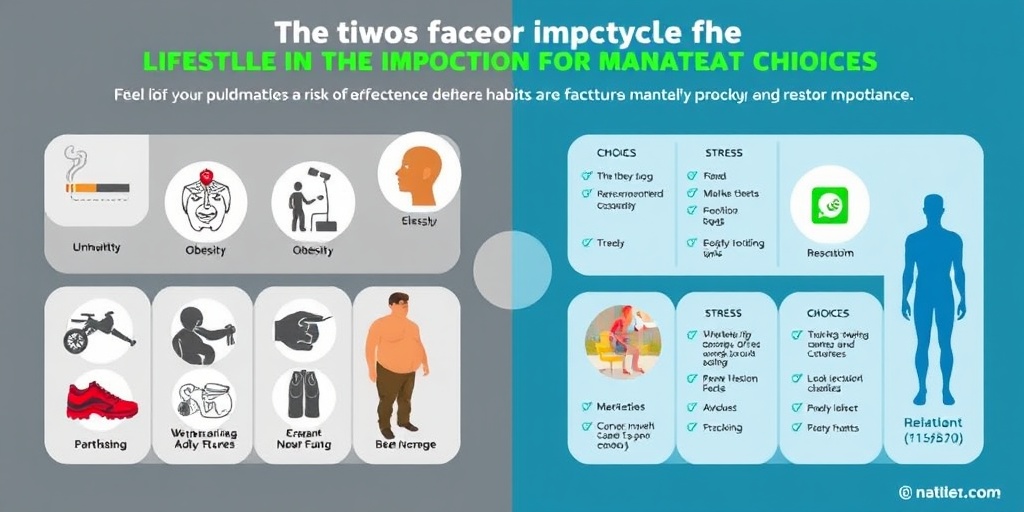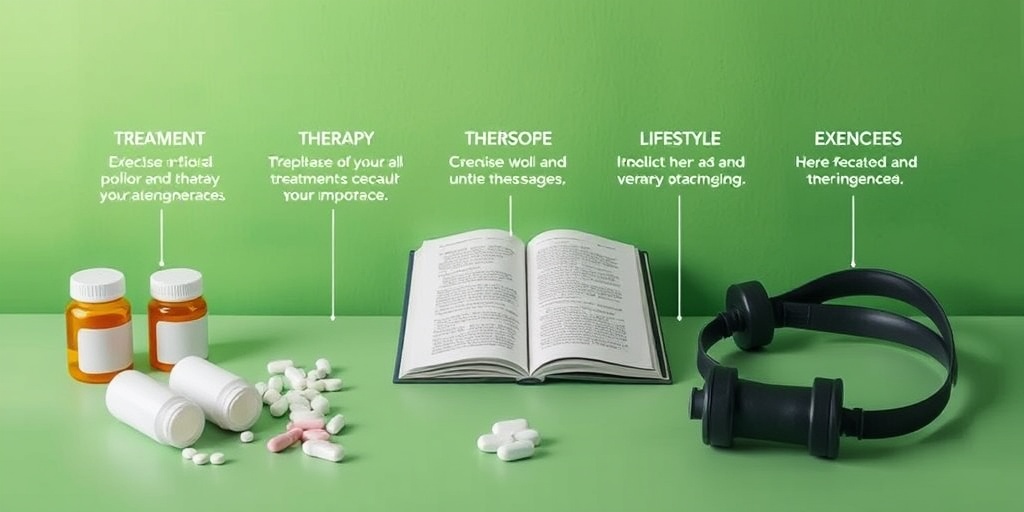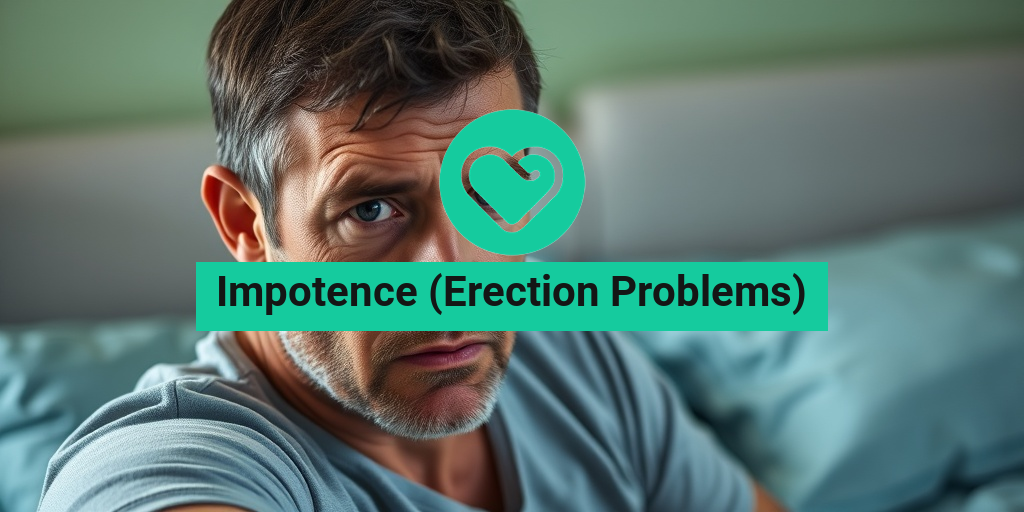What Is Impotence?
Impotence, commonly referred to as erection problems, is a condition that affects a man’s ability to achieve or maintain an erection sufficient for sexual intercourse. This issue can be both physically and emotionally distressing, impacting not only sexual health but also overall quality of life. Understanding impotence is crucial for those experiencing it, as well as for their partners.
The Medical Definition
Medically, impotence is defined as the persistent inability to achieve or maintain an erection. While occasional difficulties are common and often not a cause for concern, chronic impotence—defined as experiencing erection problems for at least three months—may indicate underlying health issues that require attention.
Causes of Impotence
Impotence can stem from a variety of causes, which can be broadly categorized into physical and psychological factors:
- Physical Causes: These include cardiovascular diseases, diabetes, high blood pressure, obesity, and hormonal imbalances. Conditions that affect blood flow or nerve function can significantly impact erectile function.
- Psycho-emotional Causes: Stress, anxiety, depression, and relationship issues can also contribute to impotence. Mental health plays a crucial role in sexual performance, and addressing these factors is essential for recovery.
Risk Factors
Several risk factors can increase the likelihood of experiencing impotence:
- Age: The risk of impotence increases with age, particularly after the age of 40.
- Health Conditions: Chronic illnesses such as diabetes and heart disease can lead to erectile dysfunction.
- Lifestyle Choices: Smoking, excessive alcohol consumption, and lack of physical activity can contribute to impotence.
Impotence Symptoms
The symptoms of impotence can vary from person to person, but they generally include:
- Difficulty Achieving an Erection: This may occur occasionally or frequently, making sexual activity challenging.
- Difficulty Maintaining an Erection: Even if an erection is achieved, it may not last long enough for satisfactory sexual activity.
- Reduced Sexual Desire: Some men may experience a decrease in libido, which can be linked to psychological factors or hormonal changes.
When to Seek Help
If you or your partner are experiencing symptoms of impotence, it’s important to consult a healthcare professional. Early intervention can lead to better outcomes and may help identify any underlying health issues. Remember, impotence is a common condition, and seeking help is a sign of strength, not weakness.
Impact on Relationships
Impotence can have a significant impact on relationships. It can lead to feelings of inadequacy, frustration, and anxiety for both partners. Open communication is vital in navigating these challenges. Couples may benefit from counseling or therapy to address emotional and relational aspects of impotence.
Finding Solutions
Fortunately, there are various treatment options available for impotence. These may include:
- Medications: Prescription medications like Viagra, Cialis, and Levitra can help improve blood flow to the penis.
- Therapy: Psychological counseling can address emotional issues contributing to impotence.
- Lifestyle Changes: Improving diet, exercising regularly, and quitting smoking can enhance overall health and potentially improve erectile function.
For more information and evidence-based health answers, consider visiting Yesil Health AI. They provide valuable resources that can help you understand impotence and explore treatment options.
In conclusion, impotence is a common issue that many men face at some point in their lives. Understanding the condition, recognizing its symptoms, and seeking help can lead to effective management and improved quality of life. Remember, you are not alone, and there are solutions available! 💪✨

Causes of Impotence
Impotence, commonly referred to as erection problems, can stem from a variety of causes, both physical and psychological. Understanding these causes is crucial for effective treatment and management. Let’s delve into the primary factors that contribute to this condition.
Physical Causes
Many cases of impotence are linked to physical health issues. Here are some of the most common physical causes:
- Cardiovascular Diseases: Conditions like atherosclerosis (hardening of the arteries) can restrict blood flow to the penis, making it difficult to achieve an erection.
- Diabetes: High blood sugar levels can damage blood vessels and nerves, leading to erectile dysfunction.
- Hormonal Imbalances: Low testosterone levels can significantly impact sexual function and libido.
- Neurological Disorders: Conditions such as Parkinson’s disease and multiple sclerosis can interfere with nerve signals from the brain to the penis.
- Chronic Illnesses: Conditions like kidney disease and liver disease can also contribute to impotence.
Psychological Causes
In addition to physical factors, psychological issues can play a significant role in impotence. These include:
- Stress: Work-related stress or personal issues can lead to anxiety, which may hinder sexual performance.
- Depression: Mental health conditions can affect libido and sexual function.
- Relationship Problems: Issues with a partner can create emotional barriers that affect sexual intimacy.
- Performance Anxiety: Worrying about sexual performance can create a cycle of anxiety and impotence.
Lifestyle Factors
Your lifestyle choices can also contribute to impotence. Consider the following:
- Smoking: Tobacco use can impair blood flow, leading to erectile dysfunction.
- Excessive Alcohol Consumption: While a drink may help relax you, too much alcohol can hinder sexual performance.
- Obesity: Being overweight can lead to health issues that increase the risk of impotence.
- Lack of Physical Activity: A sedentary lifestyle can contribute to various health problems, including erectile dysfunction.
Risk Factors for Erection Problems
Identifying risk factors for impotence can help in prevention and early intervention. Here are some key risk factors to consider:
Age
As men age, the likelihood of experiencing impotence increases. While it’s not an inevitable part of aging, older men are more prone to health conditions that can lead to erectile dysfunction.
Medical History
Your medical history plays a significant role in your risk for impotence. If you have a history of:
- Heart Disease
- Diabetes
- High Blood Pressure
- High Cholesterol
you may be at a higher risk for developing erection problems.
Family History
Genetics can also play a role. If impotence runs in your family, you may be more susceptible to experiencing similar issues.
Psychological Factors
As mentioned earlier, psychological factors such as anxiety, depression, and stress can significantly increase the risk of impotence. Addressing these issues through therapy or counseling can be beneficial.
Substance Abuse
Using drugs or excessive alcohol can lead to temporary or permanent erectile dysfunction. It’s essential to be mindful of substance use and its effects on sexual health.
Medications
Some medications can have side effects that include impotence. If you’re taking medications for conditions like high blood pressure or depression, consult your doctor about potential impacts on your sexual health.
Understanding the causes and risk factors of impotence is the first step toward addressing this common issue. If you or someone you know is experiencing erection problems, seeking professional help can lead to effective solutions and improved quality of life. 🌟

Impotence Diagnosis
Impotence, commonly referred to as erection problems, is a condition that affects many men at some point in their lives. Understanding how impotence is diagnosed is crucial for effective treatment. The diagnosis process typically involves several steps to ensure that the underlying causes are identified accurately.
Initial Consultation
The first step in diagnosing impotence is an initial consultation with a healthcare provider. During this visit, the doctor will ask about your medical history, lifestyle, and any symptoms you may be experiencing. It’s important to be open and honest during this discussion, as it helps the doctor understand your situation better. Key questions may include:
- How long have you been experiencing erection problems?
- Are there specific situations where you find it difficult to maintain an erection?
- Do you have any underlying health conditions, such as diabetes or heart disease?
- Are you taking any medications that could affect your sexual function?
Physical Examination
After the initial consultation, a physical examination may be conducted. This examination can help identify any physical issues that might be contributing to impotence. The doctor may check:
- Blood pressure
- Heart health
- Hormonal levels
- Genital health
In some cases, the doctor may also perform a rectal exam to assess prostate health, as prostate issues can sometimes lead to erectile dysfunction.
Laboratory Tests
To further investigate the causes of impotence, your doctor may recommend laboratory tests. These tests can include:
- Blood tests: To check for diabetes, hormone levels, and other health conditions.
- Urinalysis: To assess for signs of diabetes or other underlying health issues.
- Ultrasound: To evaluate blood flow to the penis.
These tests are essential for determining whether impotence is caused by physical or psychological factors.
Psychological Evaluation
In many cases, impotence can be linked to psychological factors such as stress, anxiety, or depression. If your doctor suspects that your erection problems may have a psychological component, they may refer you to a mental health professional for further evaluation. This step is crucial, as addressing psychological issues can significantly improve sexual function.
Treatment Options for Impotence
Once a diagnosis has been made, various treatment options are available for impotence. The right treatment will depend on the underlying cause of the condition, as well as individual preferences and health considerations.
Medications
One of the most common treatments for impotence involves the use of medications. These drugs work by increasing blood flow to the penis, helping to achieve and maintain an erection. Some popular medications include:
- Sildenafil (Viagra)
- Tadalafil (Cialis)
- Vardenafil (Levitra)
It’s important to consult with a healthcare provider to determine which medication is best suited for your needs, as these medications can have side effects and may not be suitable for everyone.
Therapy
If psychological factors are contributing to impotence, therapy can be an effective treatment option. Various forms of therapy may be recommended, including:
- Cognitive Behavioral Therapy (CBT): Helps address negative thought patterns and anxiety related to sexual performance.
- Couples Therapy: Encourages open communication between partners, which can alleviate stress and improve intimacy.
Therapy can provide valuable tools for managing stress and improving sexual relationships.
Vacuum Erection Devices
For those who prefer a non-invasive option, vacuum erection devices (VEDs) can be effective. These devices create a vacuum around the penis, drawing blood into it and causing an erection. Once an erection is achieved, a constriction ring is placed at the base of the penis to maintain the erection. VEDs can be a good option for men who cannot take medications.
Pensile Implants
In cases where other treatments have failed, surgical options such as penile implants may be considered. This procedure involves placing a device inside the penis that allows for an erection. While this option is more invasive, it can provide a permanent solution for those with severe impotence.
Lifestyle Changes
In addition to medical treatments, making certain lifestyle changes can significantly improve erectile function. Consider the following:
- Regular exercise: Helps improve blood circulation and overall health.
- Healthy diet: A balanced diet can improve cardiovascular health, which is crucial for erectile function.
- Avoiding smoking and excessive alcohol: Both can negatively impact sexual performance.
By addressing lifestyle factors, many men can enhance their sexual health and reduce the severity of impotence.

Home Remedies for Erection Issues
Impotence, or erection problems, can be a challenging condition that affects many men at some point in their lives. While medical treatments are available, many individuals seek natural solutions to enhance their sexual health. Here, we explore some effective home remedies that may help improve erectile function.
1. Lifestyle Changes
Making certain lifestyle adjustments can significantly impact your sexual health. Here are some key changes to consider:
- Regular Exercise: Engaging in physical activity can improve blood circulation, boost testosterone levels, and enhance overall health. Aim for at least 30 minutes of moderate exercise most days of the week. 🏃♂️
- Healthy Diet: A balanced diet rich in fruits, vegetables, whole grains, and lean proteins can support cardiovascular health, which is crucial for erectile function. Foods like spinach, watermelon, and dark chocolate are particularly beneficial. 🍉🍫
- Avoiding Alcohol and Smoking: Excessive alcohol consumption and smoking can lead to erectile dysfunction. Reducing or eliminating these habits can improve your sexual health.
2. Herbal Remedies
Several herbs have been traditionally used to enhance sexual performance and treat impotence. Here are a few popular options:
- Ginseng: Known as a natural aphrodisiac, ginseng may help improve erectile function by enhancing blood flow.
- Ginkgo Biloba: This herb is believed to improve circulation and may help with erection problems.
- Horny Goat Weed: Traditionally used in Chinese medicine, this herb may boost libido and improve erectile function.
Always consult with a healthcare provider before starting any herbal supplements, as they can interact with medications or have side effects.
3. Stress Management
Stress and anxiety can significantly impact sexual performance. Here are some techniques to manage stress:
- Meditation: Practicing mindfulness and meditation can help reduce anxiety and improve mental clarity.
- Yoga: This ancient practice not only enhances flexibility but also promotes relaxation and reduces stress levels.
- Deep Breathing Exercises: Simple breathing techniques can help calm your mind and body, making it easier to focus on intimacy.
4. Sleep Quality
Quality sleep is essential for overall health, including sexual health. Poor sleep can lead to hormonal imbalances and increased stress levels. Here are some tips for better sleep:
- Establish a Sleep Routine: Go to bed and wake up at the same time every day to regulate your body’s internal clock.
- Create a Relaxing Environment: Make your bedroom a peaceful space by minimizing noise and light.
- Avoid Screens Before Bed: The blue light emitted by phones and computers can interfere with your sleep cycle.
Living with Impotence
Living with impotence can be emotionally challenging, affecting self-esteem and relationships. However, understanding the condition and seeking support can make a significant difference. Here are some insights into managing life with erection problems.
1. Open Communication
Discussing impotence with your partner can help alleviate feelings of shame or embarrassment. Open communication fosters understanding and support, allowing both partners to navigate the challenges together. Consider the following:
- Be Honest: Share your feelings and concerns with your partner. This can strengthen your bond and reduce anxiety.
- Seek Support: Encourage your partner to express their feelings as well. This mutual support can enhance intimacy.
2. Professional Help
Consulting a healthcare professional is crucial for addressing impotence. They can help identify underlying causes and recommend appropriate treatments. Here are some options:
- Counseling: Therapy can help address psychological factors contributing to impotence, such as anxiety or depression.
- Medical Treatments: Various medications and therapies are available to treat erectile dysfunction effectively.
3. Focus on Intimacy
Redefining intimacy can help couples maintain a fulfilling relationship despite challenges with impotence. Consider these approaches:
- Explore Other Forms of Intimacy: Engage in non-sexual activities that promote closeness, such as cuddling, kissing, or massages.
- Be Patient: Understand that intimacy may take different forms, and it’s essential to be patient with each other.
Living with impotence can be difficult, but with the right support and strategies, individuals can lead fulfilling lives and maintain healthy relationships. Remember, you are not alone in this journey! 💪

Frequently Asked Questions about Impotence (Erection Problems)
What is impotence?
Impotence, also known as erection problems, refers to the inability to achieve or maintain an erection sufficient for satisfactory sexual performance. This condition can affect men of all ages but is more common in older adults.
What causes impotence?
There are various factors that can contribute to impotence, including:
- Physical causes: Conditions such as diabetes, heart disease, and obesity can impact blood flow and nerve function.
- Psychological causes: Stress, anxiety, and depression can significantly affect sexual performance.
- Lifestyle factors: Smoking, excessive alcohol consumption, and lack of physical activity can also play a role.
How is impotence diagnosed?
A healthcare provider will typically conduct a thorough medical history and physical examination. They may also recommend blood tests or other diagnostic procedures to identify underlying health issues contributing to impotence.
What are the treatment options for impotence?
Treatment for impotence can vary based on the underlying cause and may include:
- Medications: Oral medications like Viagra or Cialis can help improve blood flow to the penis.
- Counseling: Therapy can be beneficial for those whose impotence is related to psychological factors.
- Lifestyle changes: Improving diet, exercising, and quitting smoking can enhance overall sexual health.
Can impotence be prevented?
While not all cases of impotence can be prevented, adopting a healthy lifestyle can significantly reduce the risk. This includes maintaining a balanced diet, exercising regularly, managing stress, and avoiding smoking and excessive alcohol consumption.
When should I see a doctor about impotence?
If you experience persistent difficulties with erections, it is important to consult a healthcare professional. Early intervention can help identify any underlying health issues and improve treatment outcomes.
Is impotence a common issue?
Yes, impotence is a common condition that affects many men at some point in their lives. It is important to remember that seeking help is a sign of strength, and effective treatments are available.
Can impotence affect relationships?
Yes, impotence can impact relationships, leading to feelings of inadequacy or frustration. Open communication with your partner and seeking professional help can improve both sexual health and relationship dynamics.
Are there any natural remedies for impotence?
Some men explore natural remedies such as herbal supplements, acupuncture, or lifestyle changes. However, it is essential to consult with a healthcare provider before trying any alternative treatments to ensure safety and effectiveness.
What role does age play in impotence?
While impotence can occur at any age, the likelihood increases with age due to various factors, including hormonal changes, health conditions, and lifestyle factors. However, it is not an inevitable part of aging, and many older men maintain healthy sexual function.




